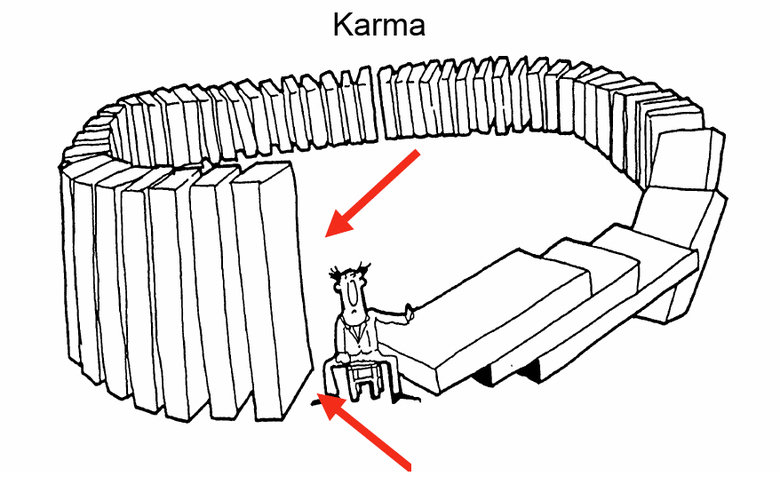Did you know that when you criticize others, you take on a part of their bad karma? So the question is, who, on Earth, would like to carry someone else’s burden, when they already have too much to deal with?
Srila Bhakti Siddhanta Saraswati Thakur discusses the error of bearing a fault-finding mentality and making attempts to see ourselves as reformers of others. Many attempts have been made to help us become free from this pernicious tendency, which easily inflates into the 1st offense against the Holy Name, to vilify or to criticize vaisnavas. The notion that fault-finding is a serious albatross around our necks is found abundantly within the scriptures. Even worldly persons have assessed the dangers of fault-finding.

In the words of Aldos Huxley- “No man can concentrate his attention on evil, or even the idea of evil, and remain unaffected. To be more against the demon than for godliness is exceedingly dangerous. Every crusader is apt to go mad. He is haunted by the wickedness that he attributes to his enemies; it becomes sort of a part of him.”
So, next time you go on and criticize a person remember some of these Vedic quotes which explain the nature of fault finding and how it affects our karma.
≈akrosaparivadabhyam vihimsanty abudha budhan vakta papam upadatte ksamamano vimucyate≈
“The ignorant seek to injure the wise by malice and back-biting; by doing so the critic takes upon himself the load of the wise man’s sins, which he, the wise man, casts off by forgiving the ignorant.” (Vidura to Dhritarastra: Mahabharata, Udyoga-parva 34.74)
≈akrusyamano nakrosen manyur eva titikSitah akrostaram nirdahati sukrtam casya vindati≈
“A person being criticized should not criticize in retaliation, for the pain felt upon receiving criticism, if endured, will itself consume the critic and bring in exchange the results of his good deeds.” (Dattatreya to the Saddhyas: Mahabharata, Udyoga parva 36.5)
≈arusyan krusyamanasya sukrtam nama vindati duskrtam catmano marsi rusyaty evapamarsiti vai≈
“One who remains tolerant, not becoming angry, certainly attains the abuser’s pious credits. Indeed his own sins are transferred to that wrathful person.” (Bhisma to Yudhisthira: Mahabharata santi-parva 115.3)
≈para-svabhava-karmani yah prasamsati nindati sa asu bhrasyate svarthad asaty abhinivesatah≈
“Whoever indulges in praising or criticizing the qualities and behavior of others will quickly become deviated from his own best interest by his entanglement in illusory dualities.” (Krishna to Uddhava: Srimad Bhagavatam 11.28.2)
≈sammanad brahmano nityam udvijeta visad iva amrtasyeva cakanksed avamanasya sarvada≈
≈sukham hy avamatah sete sukham ca pratibudhyate sukham carati loke ‘sminn avamanta vinasyati≈
“Throughout his life, a brahmana should consider material prestige to be like poison and dishonor to be like nectar. After all, if one learns to tolerate dishonor, then his agitation will subside and he will happily sleep, happily wake, and happily move about. The person who insults him will, because of his sin, become regretful, and his happiness in this and the next life will be vanquished.” (Manu-samhita 2.162-163. Quoted by Srila Bhaktisiddhanta Saraswati Thakur in “Brahmana and Vaisnava”.)
≈pratyaksam gunavadi yah paroksam tu vinindakah sa manavah svaval loke nastalokaparayanah≈
